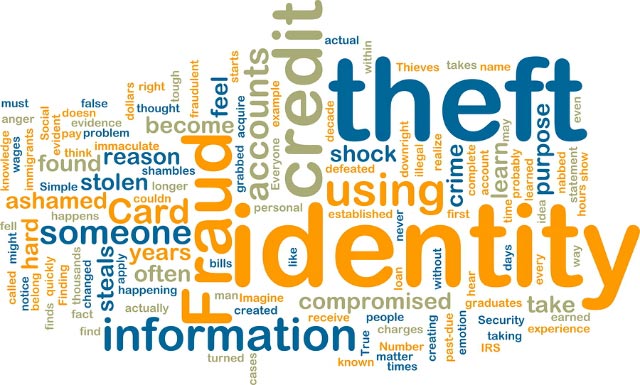Prevent Identity Theft
One of the most effective ways to protect yourself or your business against fraud and identify theft is to shred important documents when they are no longer needed. Documents with any form of personal-identifiable information should never be put directly into the garbage or recycling without proper destruction. But for those that shred documents themselves or who are setting aside documents for later destruction, it’s important to know what should be shredded. Here is a list of the documents that should be destroyed and when they should be destroyed for both individuals and businesses.
Business Documents
In a business, there are hundreds of documents on file at any given time. Periodically you may purge some of these documents, either due to a change in procedure or because they are old enough not to be needed. There is no cut and dry list of documents to destroy in a business, but there are certain timelines for how long to hold a document before it is destroyed.
It is generally recommended to keep these documents for 7 years (longer if required by state or local law).
Contracts, Correspondences, Licenses, Payroll Records
These documents should be kept on file for at least 4 years before destruction.
Bank Slips, Purchase Contracts, Expense Reports, Financial Statements (interim), Inventory Lists & Invoices
Insurance documents vary depending on what they contain. Most should be kept a minimum of 7 years, claims at least 10 years, and others even longer.
Keep in mind that when retaining documents for future reference, the retention time starts when the document is no longer needed, either due to completion of a project, termination of an employee or expiration of the contract it refers to. There are some documents that should be retained permanently, however, including:
- Annual Financial Statements
- General Ledger
- FBI BACKGROUND CHECKS
- Auditors’ Reports
- Pension/profit-sharing Information ReturnsAuditors’ Reports
- Tax Returns
- Cancelled Checks
- Sales and Use Tax Returns
- Deeds
- Patents
The bottom line is that, if you receive a document, receipt or letter that has any information that could connect someone to you personally, it should be safely stored for future use or destroyed.
Personal Identifying Documents
To protect against identity theft, individuals should shred as often and as thoroughly as businesses. Dozens of papers that arrive each month in the mail contain information that could be stolen and used for fraud or identity theft. Some examples include:
- ATM Receipts
- Credit Card Bills
- Bank Statements
- Expired ID’s, Passports, Visas, and Licenses
- Credit Reports
- Voided or Canceled Checks
- Any Document with a Signature
- Passwords or PIN Numbers
- Pre-approved Credit Applications
- Utility Bills
- Receipts with Personal Information
- Pay Stubs
The bottom line is that, if you receive a document, receipt or letter that has any information that could connect someone to you personally, it should be safely stored for future use or destroyed.
The bottom line is that, if a document is no longer in use, has passed its retention date, and is taking up space, it should be properly destroyed by a professional shredding company such as Strongbox document & data destruction.
What is Identity Theft?
Identity theft is a form of stealing someone’s identity in which someone pretends to be someone else by assuming that person’s identity, typically in order to access resources or obtain credit and other benefits in that person’s name. The victim of identity theft (here meaning the person whose identity has been assumed by the identity thief) can suffer adverse consequences if they are held accountable for the perpetrator’s actions. Identity theft occurs when someone uses another’s personally identifying information, like their name, identifying number, or credit card number, without their permission, to commit fraud or other crimes. Identity theft continues to be one of the fastest growing crimes in the United States. It is important for consumers to recognize that identity theft is not just a financial crime. This crime varies widely, and can include financial identity theft (checking and/or credit card fraud), criminal identity theft, governmental identity theft, and medical identity theft. Wisconsin is one of two states that created an Office of Privacy Protection to assist their citizens in avoiding and recovering from identity theft.
They can be located at the following address:
ID Theft & Privacy Protection 2811 Agriculture Drive PO Box 8911 Madison, WI 53708-8911 Phone: 608-224-5163 Fax: 608-224-4677 Hotline: 1-800-422-7128

